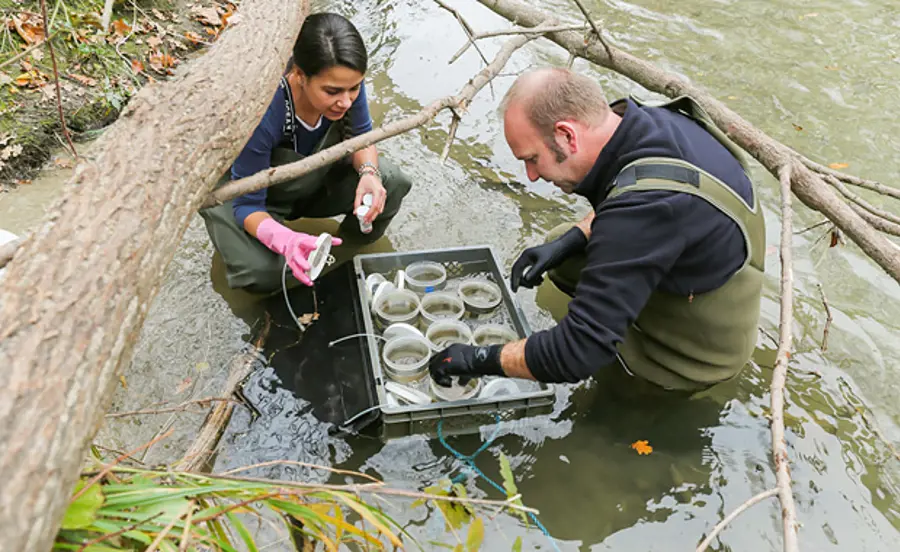Sediment Ecotoxicology

Sediments are a complex and important part of aquatic ecosystems. On one hand, they play an essential role as habitat or spawning grounds for many species, on the other hand they can adsorb persistent pollutants and thereby act as a long-term source of pollution for surface waters. The legislation stipulates that no pollutants should accumulate in sediments in order to protect aquatic life. Swiss monitoring programs for sediments are primarily based on the chemical quantification of a number of traditional compounds, but their coverage is patchy and their implementation not uniform.
To determine the sediment quality, integrative biological assays that measure the toxicity of sediments on organisms should be used in addition to chemical analysis. In many countries, the sediment quality and the risks posed by contaminated sediments are already assessed - usually with a combination of chemical, ecotoxicological and biological methods. However, such methods are not yet legally anchored in Switzerland. In addition, there are no quality criteria to characterise the toxic risk of sediments in rivers and lakes. At the Ecotox Centre, a concept is being developed to assess the toxicity of natural sediments in Switzerland.

